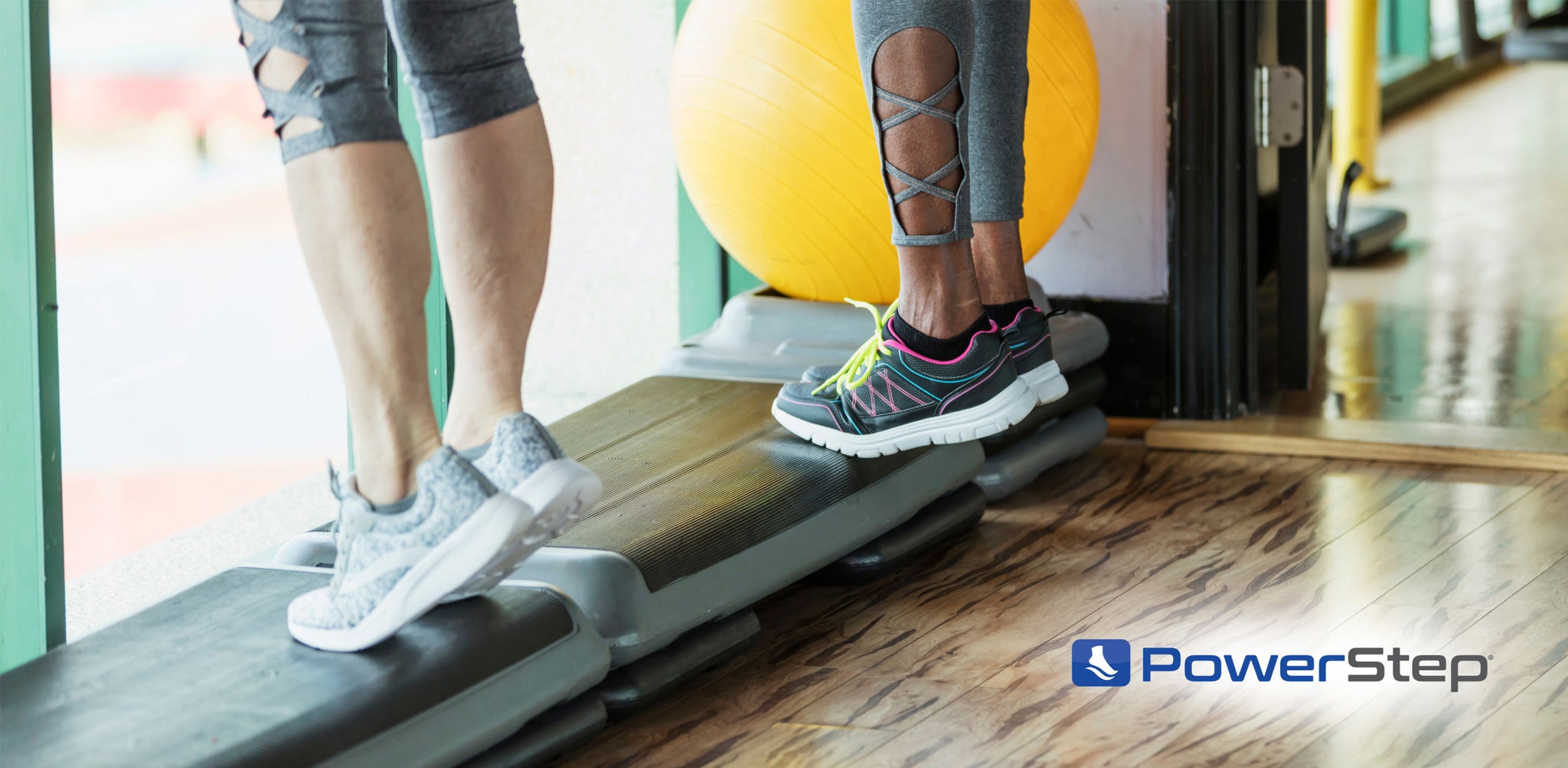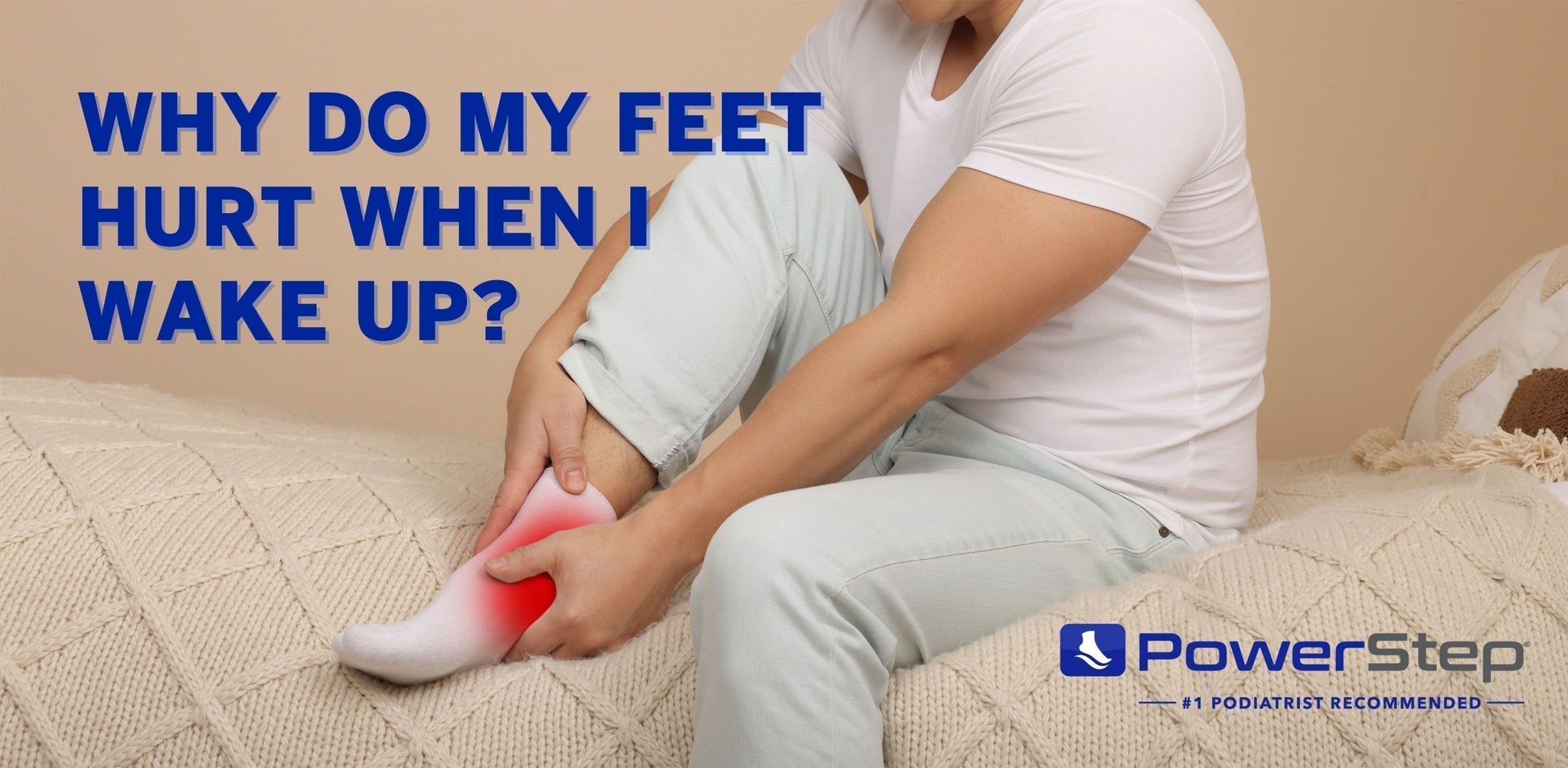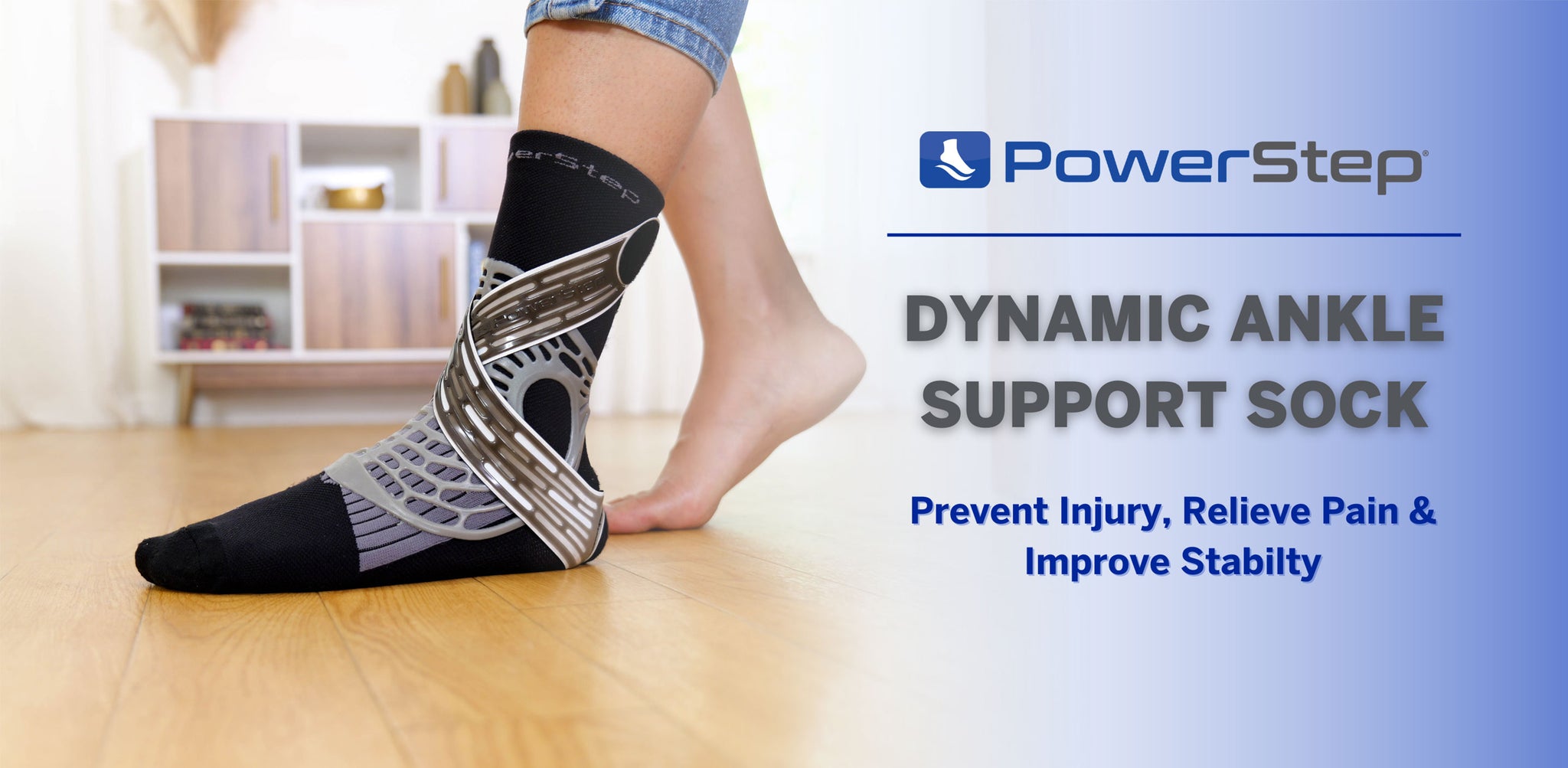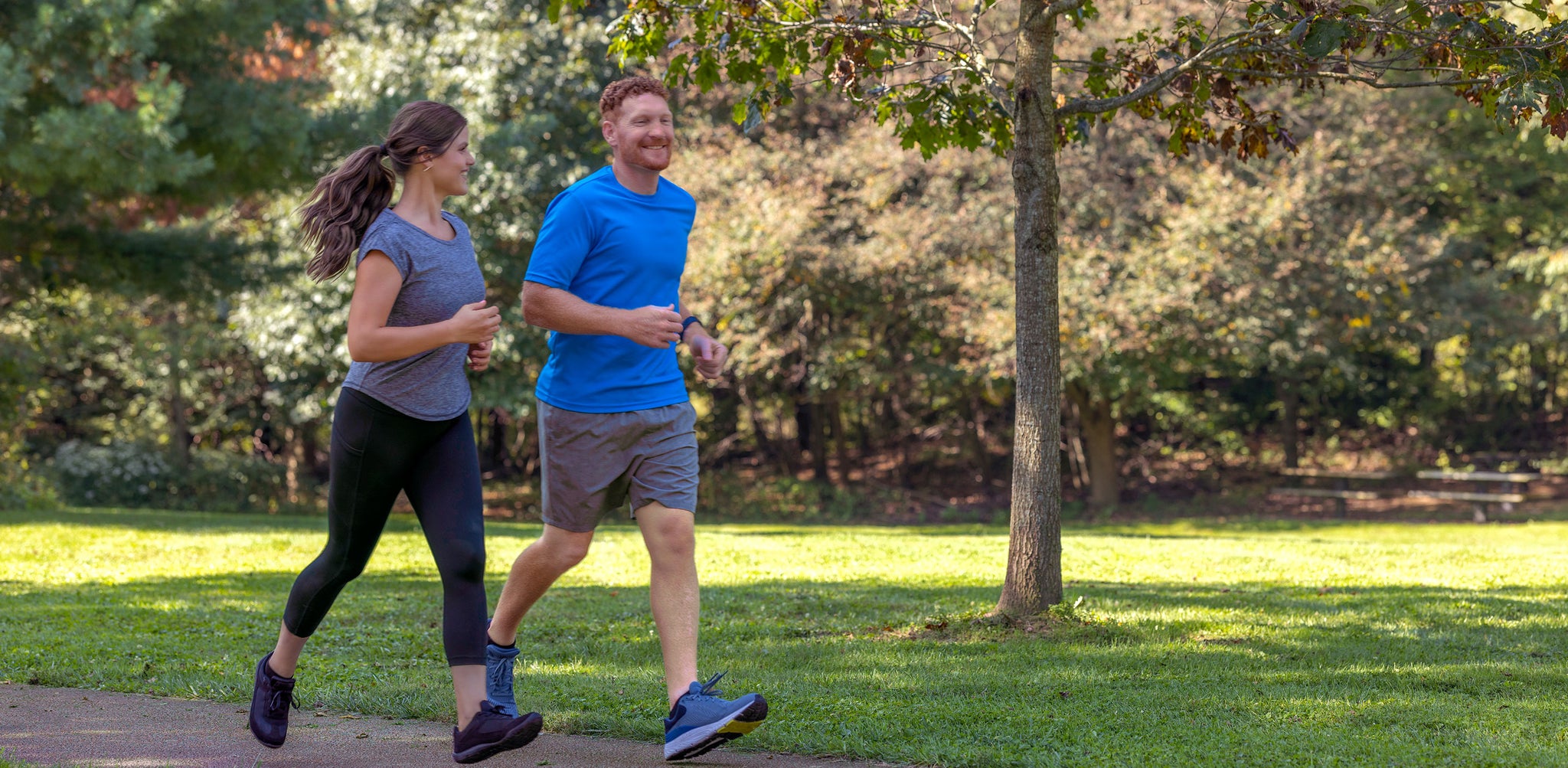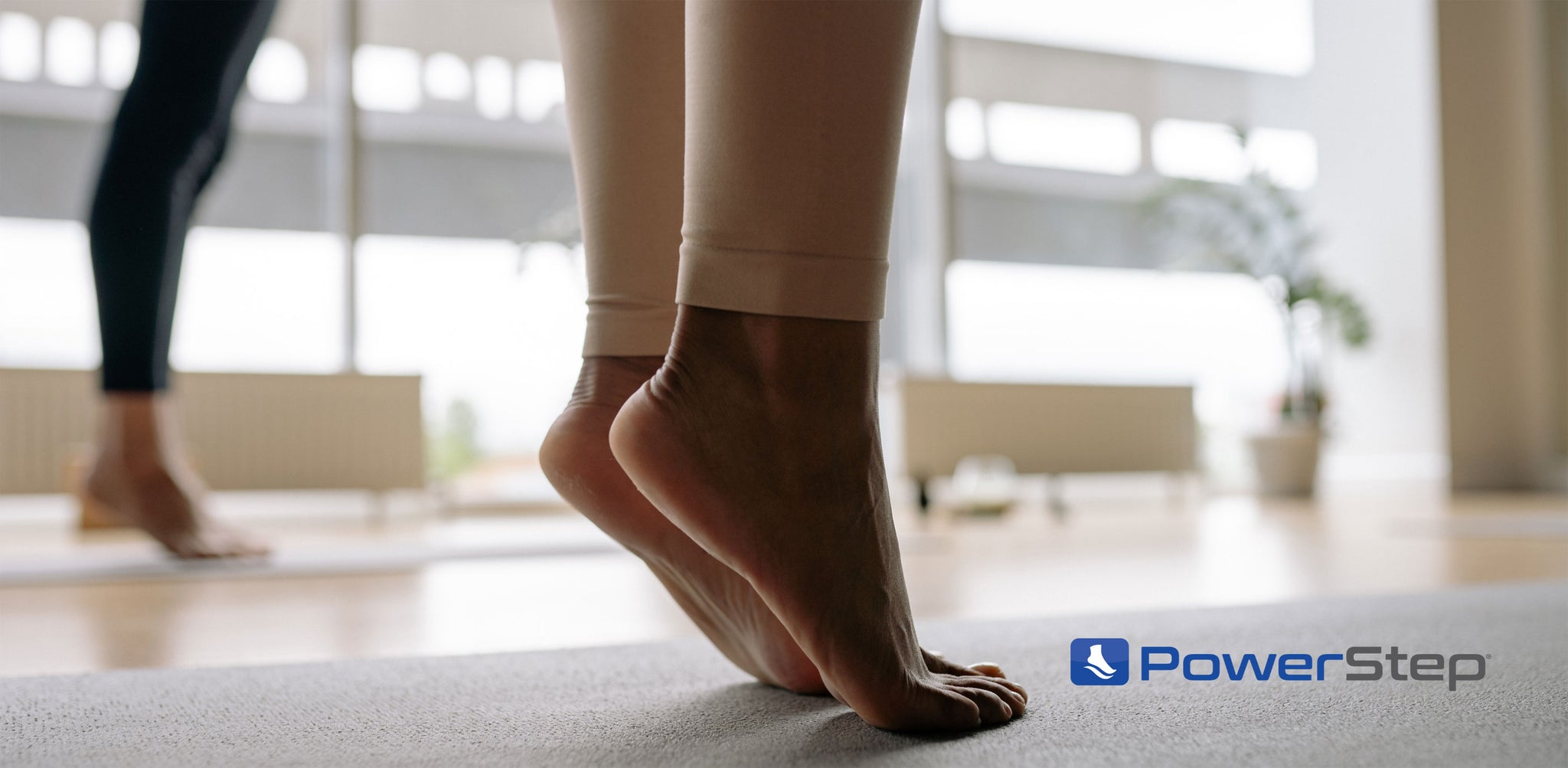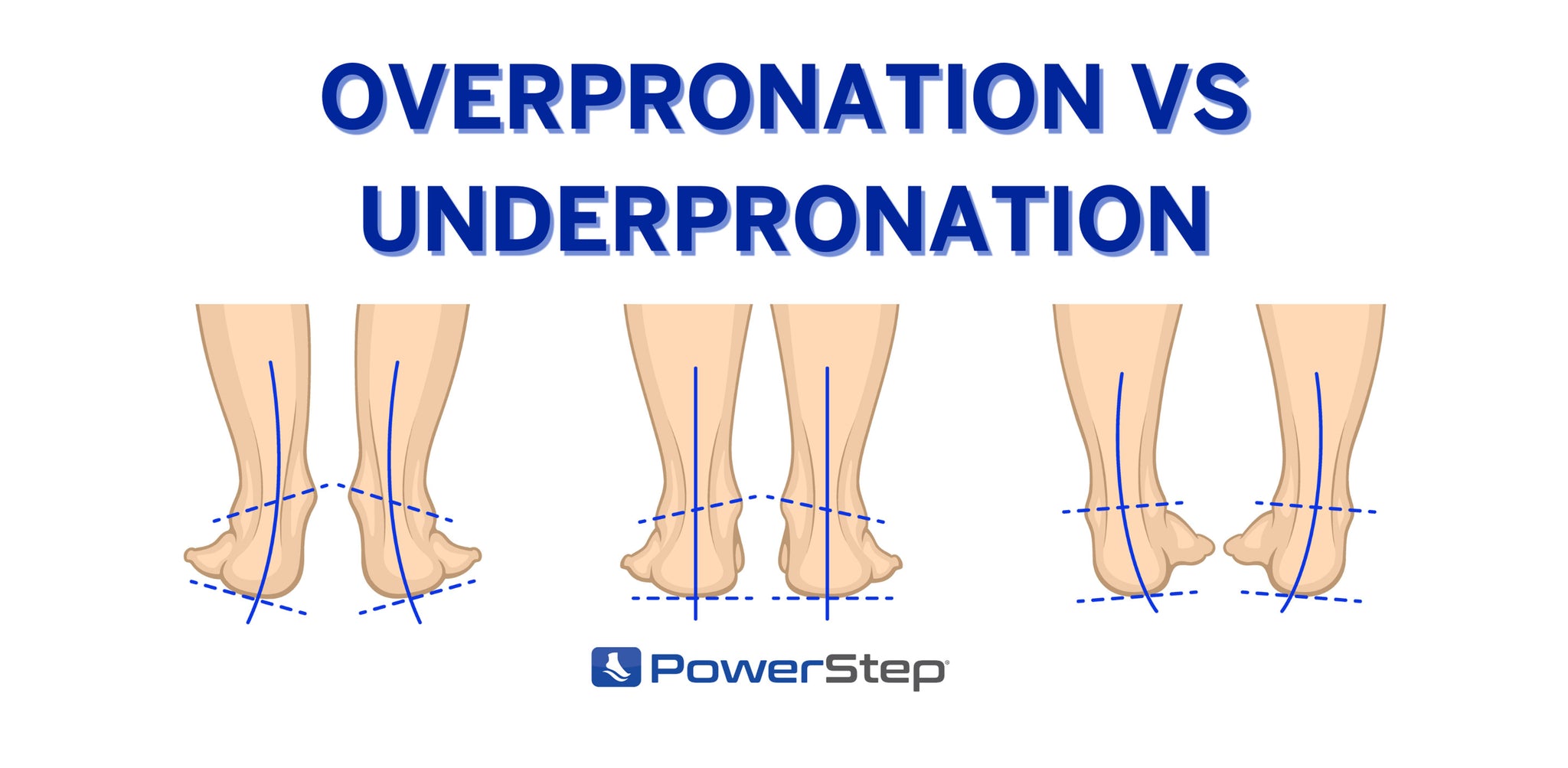Alleviate Achilles Tendon Pain
Struggling with tightness, burning, or stiffness in your heel and calf? PowerStep® orthotics support proper alignment and reduce strain, helping to ease discomfort from Achilles tendinitis.
What Is Achilles Tendinitis?

Achilles Tendinitis Explained
Achilles tendinitis, also spelled tendonitis, is an overuse injury commonly experienced by runners and athletes. Inflammation of the Achilles tendon from repeated stress can cause pain, swelling, and stiffness.
Treatments include rest, self-care, physical therapy, and using orthotic devices like braces, supports, and shoe inserts.
Understanding Achilles Tendon Pain & Inflammation
Do I Have Achilles Tendonitis?
The Achilles tendon connects the calf muscles to the heel bone, running down the back of lower leg. The largest tendon in the body, it is used when walking, running, climbing stairs, or standing on your toes. Achilles tendonitis is acute inflammation of the Achilles tendon that occurs from repeated stress or overuse.
There are two types of Achilles tendonitis that may or may not coexist:
- Noninsertional Achilles tendinitis affects the middle part of the tendon that may break down over time, causing it to swell and thicken. Younger, active individuals are more prone to this type of tendinitis.
- Insertional Achilles tendinitis happens where the tendon attaches to the heel bone. Here, damaged tissues harden with time and form heel spurs. Though it can affect anyone, long distance runners and people with tight calf muscles are at risk.
Symptoms of Achilles Tendinitis
Achilles tendonitis can feel like a mild ache in the back of the lower leg and heel that worsens with physical activity. It may take several weeks for symptoms to fully show. If you have constant Achilles tendon pain or heel pain, stop any physical activities and see your doctor.
If left untreated, Achilles tendinitis can lead to a rupture that requires surgery. Though most cases do not result from sudden injury, a popping sensation in the back of your calf or heel could be an Achilles tendon rupture and requires immediate medical attention.
Achilles tendinitis symptoms include:
- Pain or stiffness in the morning
- Pain that worsens with activity or after exercise
- Warmth or tenderness around the heel
- Swelling around the heel and tendon
- Thickening of the tendon
- Back of heel pain when wearing shoes
- Reduced range of motion when flexing the foot or ankle
- Weakness in the lower leg
What Causes Achilles Tendinitis?
Any activity that puts repeated stress on the Achilles tendon can cause inflammation and pain. Achilles tendonitis often occurs following a sudden increase in intensity or duration of exercise.
Almost 1 in 4 athletes will develop an Achilles tendon injury in their lifetime, according to the Cleveland Clinic. Because the tendon weakens with age, Achilles tendonitis is also common in middle-aged individuals who only participate in sports on the weekends.
Achilles tendinitis causes include:
- Participating in activities like running, sports, or dance
- Working a job that puts stress on your feet and ankles
- Having flat feet or overpronation that puts added stress on the tendon
- Exercising with tight calf muscles
- Wearing shoes that are worn out or lack support
- Having Haglund’s deformity, a bony growth on the heel that rubs against the tendon
Achilles Tendinitis Treatments & Self-Care
To diagnose Achilles tendonitis, your doctor will ask about your symptoms, perform a physical exam, and may order x-rays to look for bone spurs.
If symptoms do not improve after six months of treatment, Achilles tendinitis surgery may be necessary to repair the tendon, and remove damaged tissues and bone spurs.
Most cases can be treated using Achilles tendinitis self-care strategies and interventions like:
- R.I.C.E. method (Rest, Ice, Compression, and Elevation)
- Nonsteroidal anti-inflammatory drugs, or NSAIDs
- Wearing orthotic devices like heel lifts and shoe inserts for heel pain
- Physical therapy for Achilles tendon stretches
- Shockwave therapy that promotes tissue healing
Medical Devices & Insoles for Achilles Tendonitis
For support in your everyday shoes, running shoes, and work shoes, PowerStep® orthotics and heel lifts can provide relief for Achilles tendon pain and prevent recurrence.


Achilles tendinitis medical devices help align the feet and ankle and reduce strain on the Achilles tendon to promote healing.
Try the following PowerStep® products for Achilles tendinitis relief:
PowerStep® Adjustable Heel Lift
The PowerStep® Adjustable Heel Lift provides a slight lift plus comfortable cushioning that helps take stress off the Achilles tendon and shortening the range of motion.
Designed to absorb shock and relieve pain, heel lifts help the Achilles tendon heal and recover.

PowerStep® Pinnacle Insoles
PowerStep® Pinnacle orthotic insoles help prevent and relieve pain from Achilles tendonitis and other common conditions.
Also available as Pinnacle Low insoles for flat feet, our podiatrist-designed arch cradles the arch and heel, aligning the feet and ankles plus limiting stress on feet, ankles, joints, and tendons.

PULSE® Performance Insoles
Designed by runners for runners, the PowerStep® PULSE® Performance insoles have our same clinically proven arch and heel support plus ShockAbsorb™ Premium Foam.
These running shoe insoles enhance comfort from heel to toe and absorb shock to reduce stress on the feet, ankles, joints, and tendons.

PowerStep® Pinnacle Maxx Support Insoles
Our Pinnacle Maxx Support insoles for casual shoes and PULSE® Maxx insoles for running shoes help relieve and prevent pain from overpronation that may cause Achilles tendonitis.
An angled heel post keeps the heel from rolling inward for improved stability and alignment while relieving strain on the tendons.

PowerStep® Dorsal Night Splint
The PowerStep® Dorsal Night Splint has a comfortable, non-bulky fit with soft, breathable materials and adjustable straps.
This Achilles tendonitis brace is worn while you sleep to hold the foot in place with your toes pointed up, maintaining flexibility in your calves with less pull on the heel and tendon.
PowerStep® Dynamic Ankle Support Sock
By providing compression to the Achilles tendon and other surrounding vulnerable tissues, the Dynamic Ankle Support Sock, or DASS, can help prevent reinjury and improve stability during physical activity.
The ankle support brace can be worn daily and fits in most shoes, encouraging healthy, pain-free movement.
FAQs About Achilles Tendinitis
Do you have questions about treating Achilles tendon pain or how orthotics like PowerStep® can help heal and prevent painful foot and ankle conditions? These frequently asked questions provide more information.
Learn About Achilles Tendonitis & More Through Our Blog
Other Common Foot Conditions
REFERENCES
- Achilles Tendinitis. (2021). Cleveland Clinic.
- Achilles tendinitis. (2018). Mayo Clinic.
- Achilles Tendinitis. (2010). OrthoInfo – AAOS.












